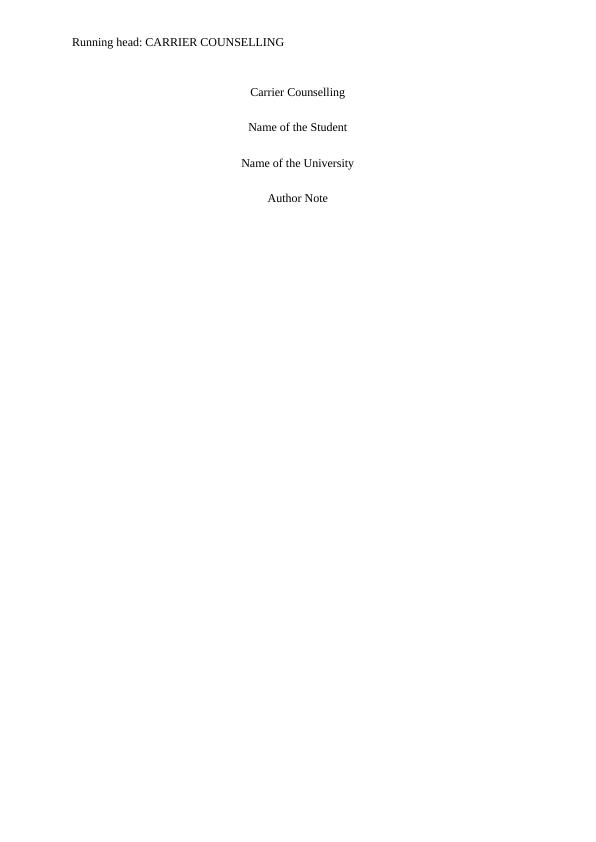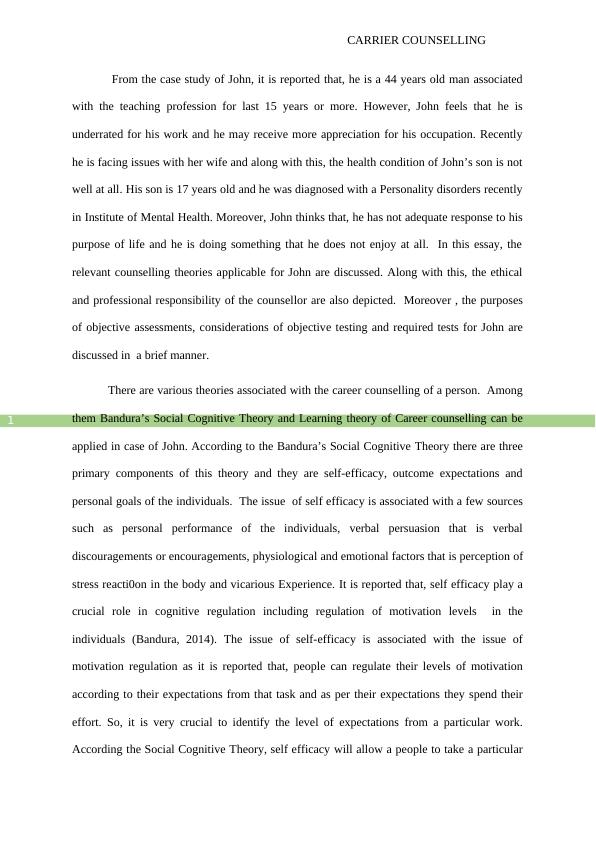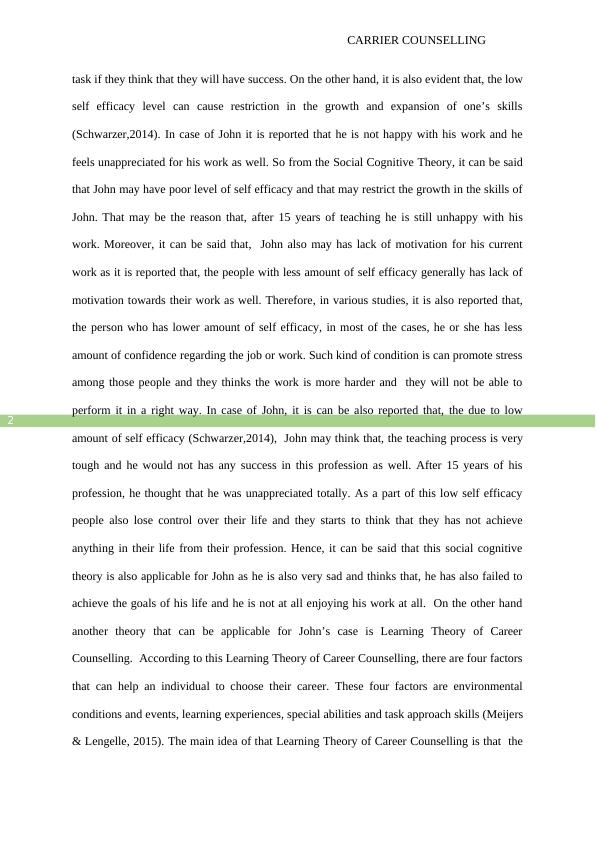Career Counselling: Theories and Ethical Responsibilities
9 Pages2739 Words95 Views
Added on 2022-12-27
About This Document
This essay discusses the relevant counselling theories applicable for John, a teacher who feels unappreciated and lacks motivation. It explores Bandura's Social Cognitive Theory and the Learning Theory of Career Counselling. The ethical and professional responsibilities of counsellors are also discussed. The importance of objective assessments and the use of the MMPI scale are highlighted. College/University: Not mentioned
Career Counselling: Theories and Ethical Responsibilities
Added on 2022-12-27
ShareRelated Documents
End of preview
Want to access all the pages? Upload your documents or become a member.
Self Efficacy Assesment Report
|7
|1555
|28
Social Cognitive Theory
|7
|1822
|35
Career Development Theory 2022
|9
|2335
|43
Personal, Environmental, Behavioural Factors from Bandura’s Social Cognitive Theory Model
|3
|1182
|24
High-Risk Sex reference to Social Cognitive Theory The German
|1
|468
|40
Observational Learning and Social Cognitive Theory
|5
|638
|125



